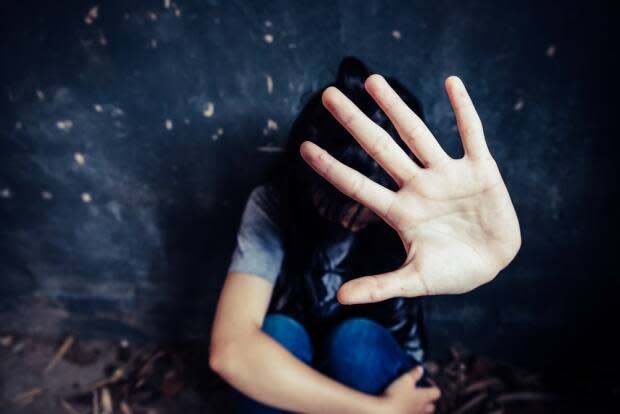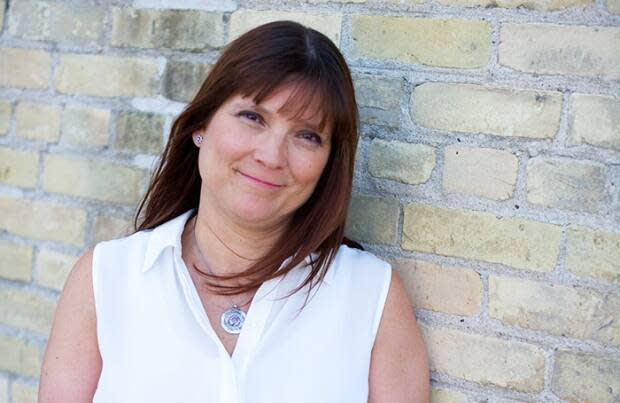Reports of sexual violations against children double in P.E.I.

There's been a jump in the number of police reports of sexual violations against children in Canada, including in P.E.I., which has seen an increase of 177 per cent between 2014 and 2019.
The number of reports to police on P.E.I. rose from 18 to 50 between those years — that includes adults reporting abuse as children. Nationally reports have increased from 4,534 to 10,038 in the same time frame — a jump of 121 per cent.
Sexual violations against children include crimes such as sexual interference, invitation to sexual touching, sexual exploitation, making sexually explicit material available to children for the purpose of facilitating sexual offences against children/youth and luring a child via a computer. The category does not include child pornography or sexual assault.
"They're already shocking numbers, and then when you realize that not all of the offences are even in that categorization that Stats Can calls sexual violations against children, it makes it even worse," said Monique St. Germain, with the Canadian Centre for Child Protection, based in Winnipeg.

She expects the numbers to rise during the pandemic. With more children home during periods of lockdown or school closures, using technology more often, and often with less supervision, the opportunities increase for adult predators, said St. Germain.
Situation worsens during pandemic
"What I am anticipating is in the next few years, we are going to see all sorts of cases coming forward where we're looking at victimization of children that happened during this period that we were not identifying during this period," said St. Germain, whose group operates Cybertip.ca, a national tip line to report online sexual exploitation against children.
It has already noted a 88-per-cent increase in reports during the pandemic, of sexual exploitation or attempts to sexually abuse children.
St. Germain said technology is making it easier for abusers to contact children directly and avoid adult intervention.
"It has gotten considerably worse over the last several years, not just in Canada, but around the world, as technology is more readily available to both children and adults. And there's a lack of regulatory oversight and accountability in all of those spaces, which enables adults to communicate directly with children in a way that is unprecedented in our history," she said.
Children report the abuse because they want it to stop, said St. Germain, but many of these cases don't make it to court, as children don't make ideal witnesses. They don't usually stand up well to cross-examination, and don't necessarily remember violations against them in a way that's linear and easy for them to explain, she added.
Why they don't come forward is a fear of not being believed - Monique St. Germain, Canadian Centre for Child Protection
Many survivors never report their abuse, she said.
"We hear from victims and survivors over and over again, why they don't come forward is a fear of not being believed," said St. Germain.
It can be devastating when a child goes to court and there is no conviction, she said.
"It makes the whole thing seem like it wasn't worthwhile for them. It makes them feel — at least the victims that we have spoken to and the families that we have spoken to — it makes them feel like their experience didn't matter, that their strength and courage in coming forward didn't matter," said St. Germain.
Adult survivors of childhood abuse
The #MeToo movement has also led to more adults coming forward to report past assaults.
About half the calls to the P.E.I. Rape and Sexual Assault Centre are from survivors of childhood sexual abuse, said Rachael Crowder, the centre's executive director.

"People coming out saying, 'You know, I've been raped, I've never told anybody this has happened to me,'" she said.
It's an impact that lasts well into adulthood - Rachael Crowder, P.E.I. Rape and Sexual Assault Centre
Those who seek help years after the abuse are complex cases, she said, as their trauma has gone untreated for years.
"The impacts on children are staggering and it's an impact that lasts well into adulthood," said Crowder.
Safeguards
"Most people don't want to believe that these kinds of things are happening to children, but they are. And if we don't start talking about them and we don't start understanding where some of the problems are, we're not going to get better," said St Germain.
Most child abusers know their victims, she said, whether it's a friend or relative of the child's parents, a teacher or coach.
St. Germain encourages people to be alert for signs of potential abuse, such as unnecessary touching or grooming. And organizations that work with children can bring in policies to safeguard children, she said, such as school policies around texting and touching of students.
More from CBC P.E.I.

